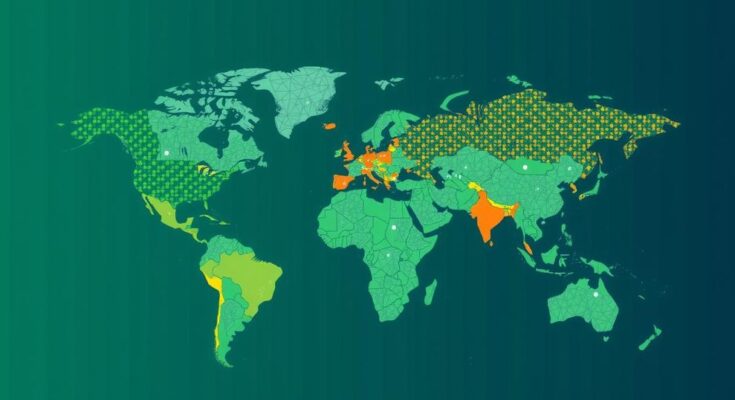COP29 in Baku highlights urgent calls for increased climate financing amidst rising global climate risks. With a focus on replacing the outdated $100 billion target for developing nations, experts stress the need for roughly $2.4 trillion annually by 2030. Multilateral efforts, including the proposed Climate Financing Action Fund, aim to bolster financial resources, while discussions around Nationally Determined Contributions will shape future climate policies and commitments.
The 29th Conference of the Parties (COP29), taking place in Baku, Azerbaijan, provides a pivotal opportunity to readdress climate finance amidst a backdrop of global climate challenges and geopolitical tensions. This year, the discussions are critical as nations seek to redefine their commitments to climate action following the previous year’s agreements to phasing out fossil fuels. With financing needs in developing countries escalating, there is a pressing call for a new climate financing target to supersede the 2009 commitment of $100 billion annually until 2030. Columbia Threadneedle emphasizes that current estimations suggest developing nations will require approximately $2.4 trillion yearly until 2030 to tackle climate risks and transitions effectively. The impetus for establishing a New Quantified Collective Goal for Climate Finance (NCQG) is underscored by potential contributions from the private sector and the challenges faced by developed nations, which grapple with increasing public debt and the fiscal ramifications of domestic climate emergencies. Vicki Bakhshi underscores the significance of nations finalizing their Nationally Determined Contributions (NDCs) during this meeting to widen the 2030 timeline to 2035. Expectations for COP29 vary, with some, like AXA IM, advocating for heightened national contributions and advancements in renewable energy targets. Virginie Derue articulates concerns over the fulfillment of past commitments and underscores the necessity for a collective goal beyond 2025. Discussions surrounding the proposed Climate Financing Action Fund (CFAF) might catalyze significant funding efforts, although this relies heavily on voluntary contributions from nations and fossil fuel entities. The anticipated international cooperation, led by multilateral development banks, aims to enhance synergy in climate financing while jointly addressing climate action outcomes. The EIB Group pledges to focus on sustainable initiatives directed towards clean energy, biodiversity, and climate resilience. Nadia Calviño asserts the EU’s commitment to developing concrete solutions to combat climate change and urges global leadership within the realm of climate action. As COP29 unfolds, it is essential to recognize that financial mobilization plays a crucial role in translating ambitious climate goals into actionable outcomes. The dialogues initiated at COP29 may set the stage for future financing strategies that are not merely theoretical but result in substantial climate-related actions.
With COP29 located in Azerbaijan, the conference emerges as a significant juncture for redefining global climate financing commitments. The current context, shaped by recent geopolitical events and compounding climate disasters, stresses the urgency of mobilizing adequate financial resources for effective climate action, particularly in developing countries. The meeting seeks to establish new frameworks for funding that adapt to the heightened climate risks that have become evident since previous agreements were made.
COP29 represents a crucial moment for global climate financing, as international leaders gather to redefine their financial commitments and strategies in the face of escalating climate challenges. While there are high expectations for enhanced cooperation and ambitious funding goals, the effectiveness of these discussions will ultimately hinge on the delivery of concrete financial solutions that can facilitate meaningful climate action for developing nations.
Original Source: www.fundssociety.com




